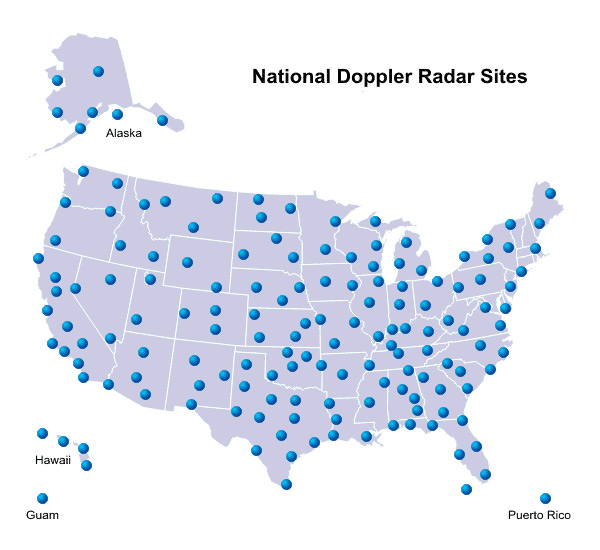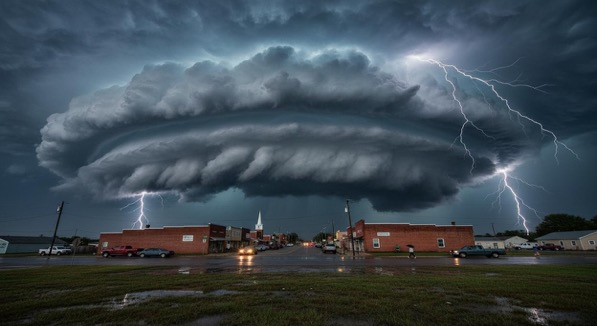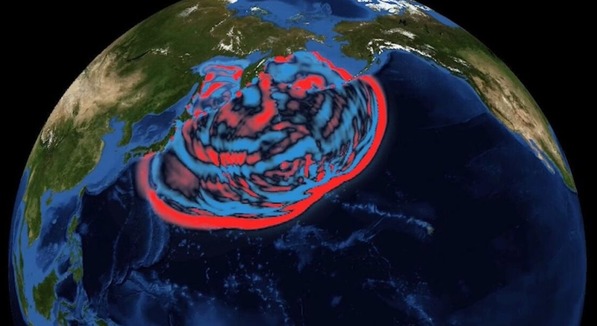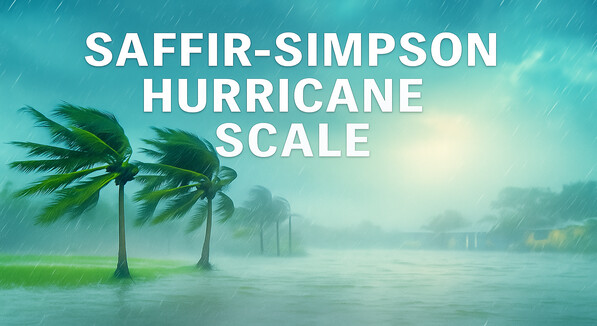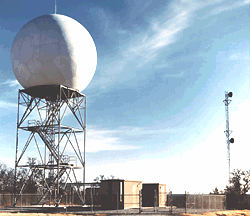 |
The National Weather Service (NWS) operates a network of 154 Dopplar Radar sites across the United States, commonly called NEXRAD for Next-Generation Radar. These weather radars provide a view inside a storm where its behavior is observed to determine the development of threatening weather. |
|
|
Threatening weather that can be observed includes tornados, hail storms, thunderstorms, flooding, and straight line wind such as derechos. For any of these events NWS forecasters will issue a tornado warning, severe thunderstorm warning, or flood warning. Of course there is also a general purpuse use to weather radars such as determining the approach or exit of rain or snow from an area. Weather radar coverage reaches every major city and you can view your local radar in real-time by clicking on the closest radar to your location below….. |
||
